ABSTRACT: During March 1974 Sergeant Johan Khun was in charge of a 5-man Police patrol near Kandahar fishing camp along the Zambezi River. They disappeared. The SA Police later found the bodies of four murdered Police members. Sgt Khun appears to have been abducted by ZIPRA fighters; he was never found or heard of again.
KEYWORDS: Abduction and murder of SA Police in Rhodesia; Captain Jac Buchner; Captain Johan ‘Sakkie’ van Zyl; Lieutenant Colonel Schnetler; Lieutenant Nolte; Major Steve Lerm; Sergeant Johan Kuhn; Rhodesian Air Force; SA Police Counter Insurgency; ZIPRA
By Captain Johan ‘Sakkie’ van Zyl, SA Police Security Branch
South African Police Counter-Insurgency Patrol disappeared during the Rhodesian Bush War
SA Police officers posing next to Welcome to Rhodesia sign during Bush War (photo credit: JG le R Stemmet)
On Friday the 8th of March, 1974, the SA Police base in the small village of Victoria Falls was a scene of hectic preparation as a group of VIPs from South Africa was expected to conduct a ceremony to officially receive a swimming pool that was presented to the SAP members doing border duty in that area. Lieutenant Colonel Schnetler and his second-in-command, Major Steve Lerm, were handing out duties when a call came from the Rhodesian National Parks office at the Victoria Falls Park gate that a tracker employed by the SAP base at Kazangula had arrived there with news that his patrol had been overrun by ZIPRA insurgents at the Kandahar fishing camp, a few kilometres up-river on the banks of the Zambezi.
Soon afterwards, a Rhodesian Air Force Alouette helicopter landed at the Vic Falls camp and a small patrol was assembled to go investigate. As I boarded, the pilot mentioned that the SA Police patrol had fired at his chopper near Kandahar fishing camp on the banks of the Zambezi River. I remember thinking that this was nonsense and that it could only have been insurgents. Major Lerm insisted on accompanying us, in spite of the fact that he was already somewhat elderly and not really fit to go on an extended patrol.
After a flight of only a few minutes, we landed near the fishing camp (which was nothing more than a concrete floor with a round roof and open sides, like a bungalow).
It was clear that something was seriously wrong as we observed pieces of uniform, clearly washed and hung over the bushes to dry, as well as a cluster of SAP-issued FN rifles in the roofed hut. One of the guys then discovered an area where the grass had been flattened by the ambushers (from where they had clearly been observing the unsuspecting policemen), as well as a Soviet water bottle lying in the grass. Some spoor was found and we hurriedly followed it, down the path leading away from the camp.
A hundred metres or so from the fishing camp we came across the bodies of four naked males, our police comrades. They had been shot at close range and their bodies were riddled with bullet holes. All were shot with a final shot through the head. One was shot through his hands, which he had tried to hold in front of his face for protection. Their blood was still wet on the ground and AK-47 spent cartridges lay everywhere.
It was clear that Sergeant Johan Kuhn, the patrol leader, was not with them and a search of the area also did not turn up his body. The helicopter landed again with more policemen. Among others, Lieutenant Nolte and Captain Jac Buchner, the head of the SAP Security Branch at Vic Falls. With the help of a Rhodesian tracker, I searched around the scene and found several tracks leading roughly westwards. The tracks were made by boots that were known to be issued to terrorists, with clear figure-of-eight patterns on the soles.
A follow-up was formed with Nolte in charge behind me and the tracker, and some volunteers in extended line formation on both sides of us. The tracker was clearly very nervous and in the long grass near the river he made very slow progress. Game paths to the water crossed the spoor all the time, further confusing us. The tracks eventually turned in a northerly direction until they stopped at the edge of the river, across which lay Zambia – where we could not go. We searched up and down along the Rhodesian bank of the river, but found no more sign of the perpetrators. All the time, due to the terrain and the abundance of grass, we could find no sign of Kuhn’s barefoot spoor. We had to assume that the terrorists had force-marched him alive from the scene of the shooting.
We deployed on the bank of the Zambezi for the night and sat huddled together through the cold early morning hours as we did not have any warming equipment. Throughout the night we watched the river and could actually see some lights blinking on the Zambian side, almost a kilometre away. At first, we thought that it could maybe be Kuhn who got away and tried to signal to us, but eventually decided that it was probably caused by fires with people moving in front of it, causing a blinking sensation at that distance.
Early the next morning our group’s follow-up operation was tentatively suspended and we arrived tired and hungry back at camp. Major Lerm had gone to Wankie (Hwange) to personally clean up the bodies of his ‘sons’ at the mortuary and attend to the interrogation of the tracker who had reported the incident, which was then in progress. The latter’s account was that, while the South Africans were washing their clothes and swimming in the river, he was feeling sick and had received some tablets from Kuhn. He then went to sleep against a nearby ant-hill and when he woke up, he heard African voices and Sergeant Kuhn saying: ‘Don’t shoot’. Hearing this, he looked over the ant hill and saw the South Africans with their hands in the air and a number of terrorists who were pointing their AKs at the policemen. He slipped away and started running towards the National Park gate, about four kilometres away. While he was running, he heard a number of shots fired on full-automatic behind him.
More policemen were flown in from South Africa and further intensive searches were carried out in the area, the guys almost walking shoulder to shoulder. No sign that Kuhn was murdered on the Rhodesian side could be found. Sometime later, after we had already left, the Rhodesians received more information, according to which Sergeant Kuhn was indeed shot on the Rhodesian side of the river and that his body had then been stuck into an aardvark hole.
Another intensive search was launched but no sign of the unfortunate South African policeman was ever found.
(Then) Lt. Col. JG le R Stemmet at Victoria Falls, during Rhodesian Bush War

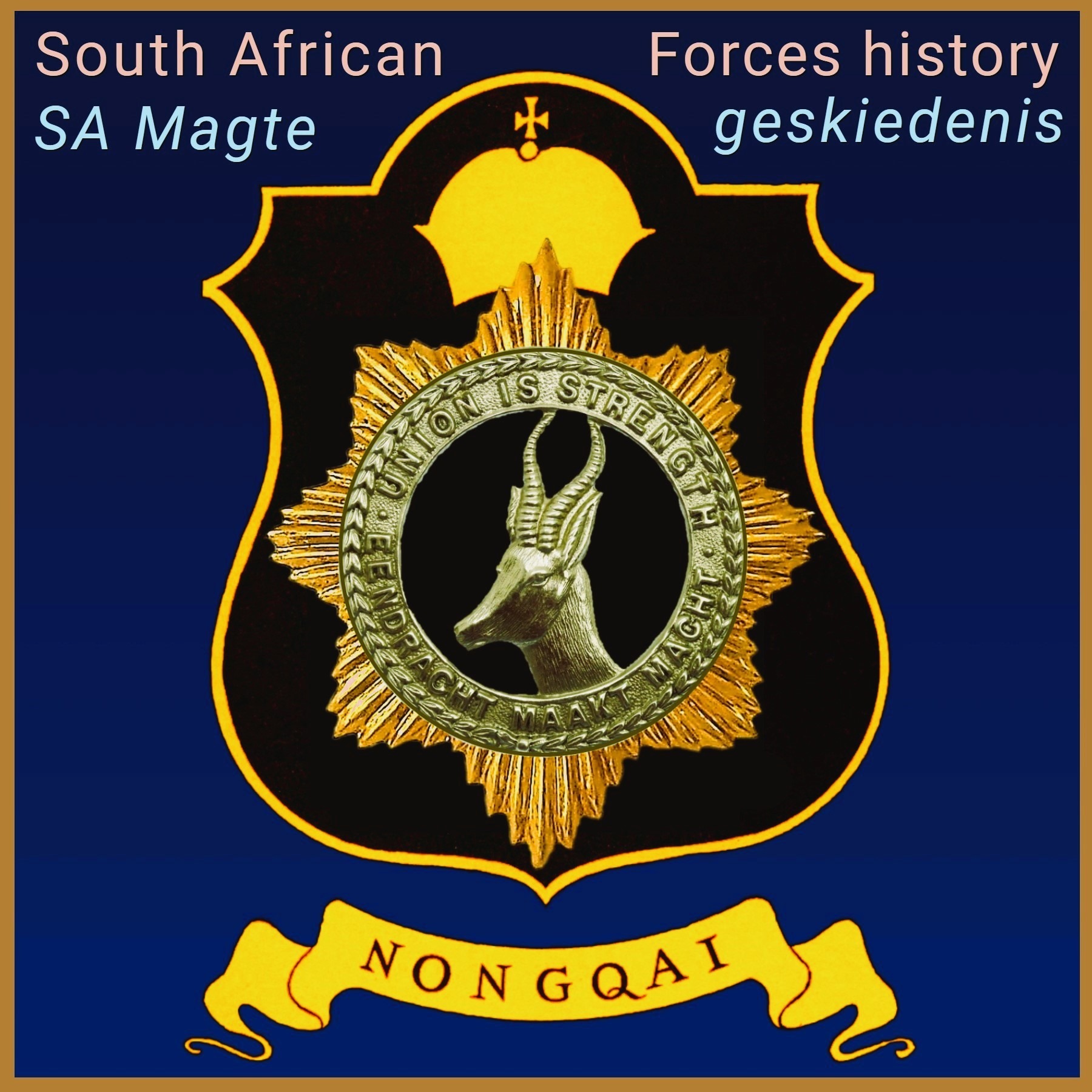
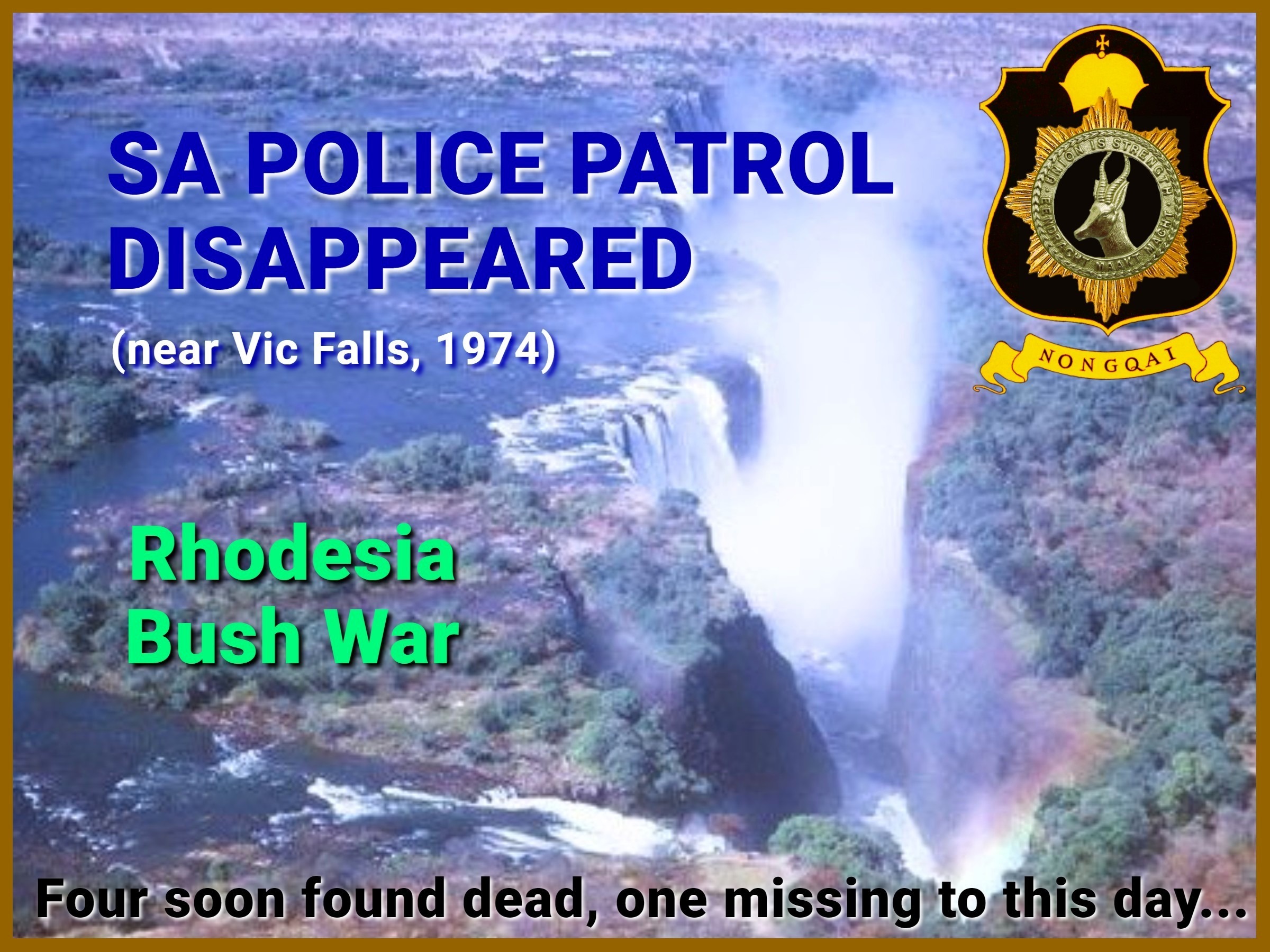
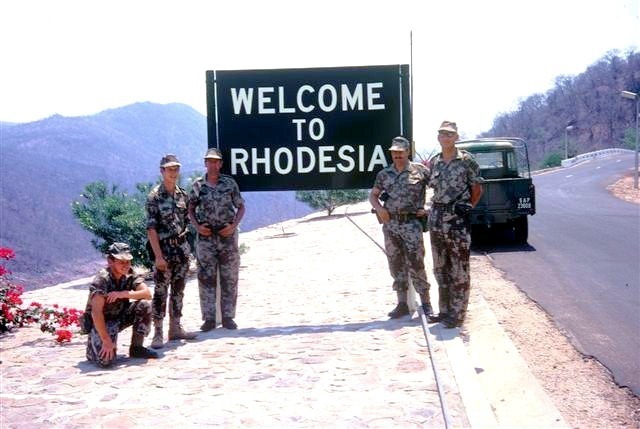
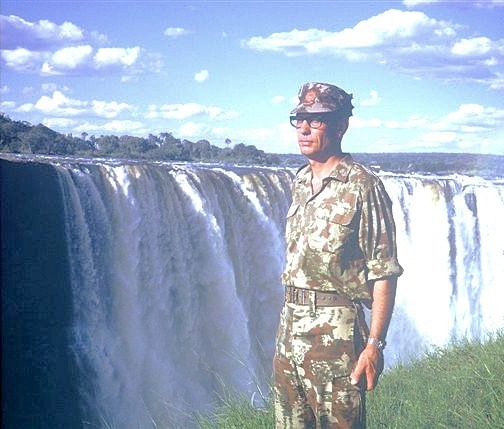
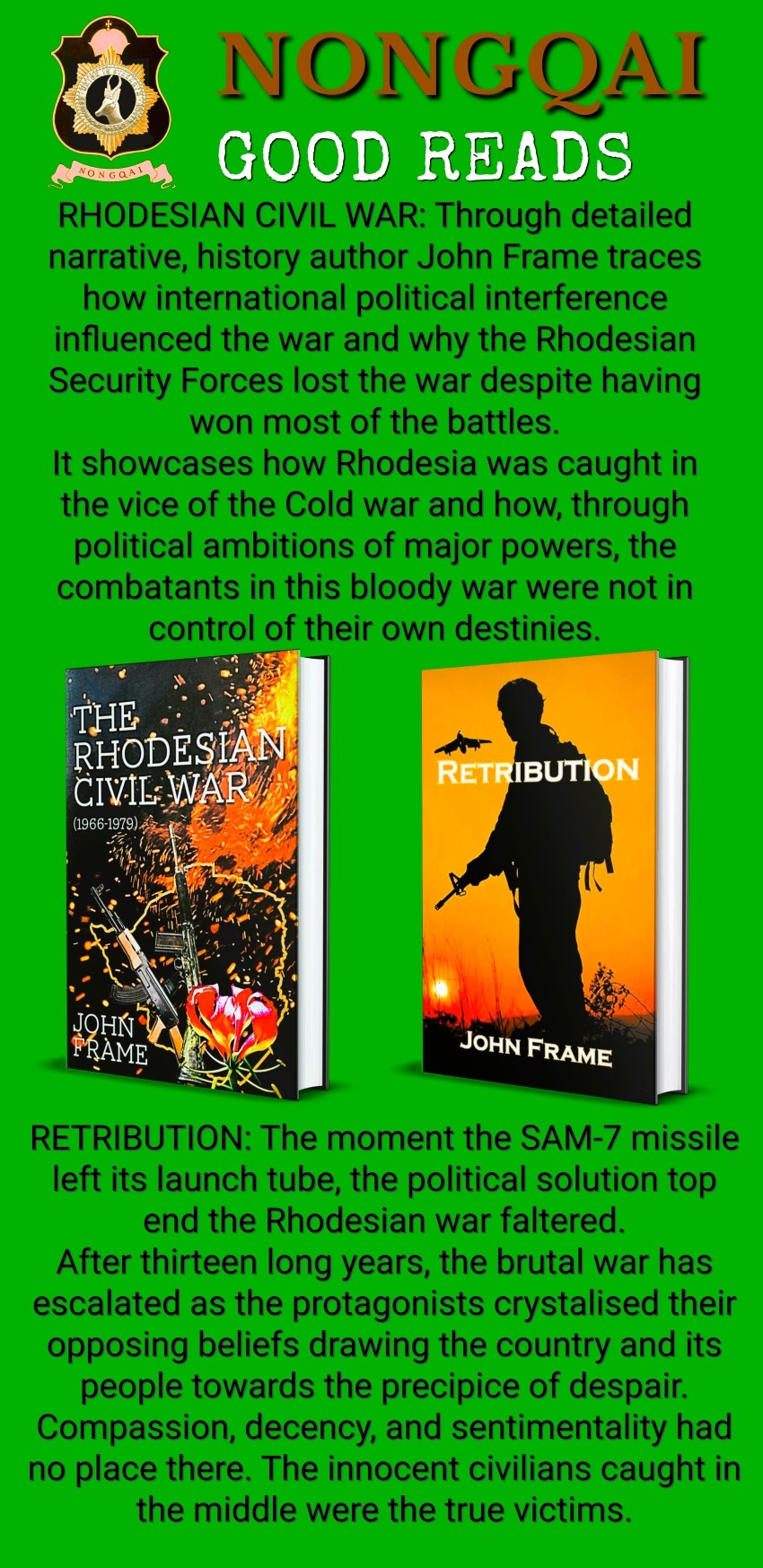
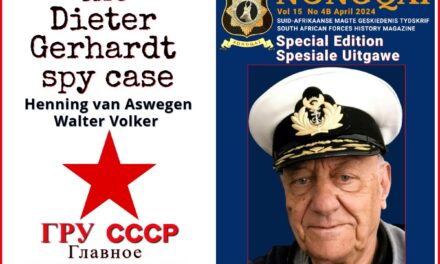
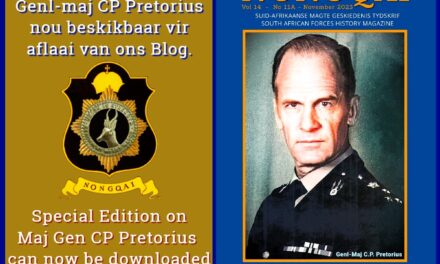
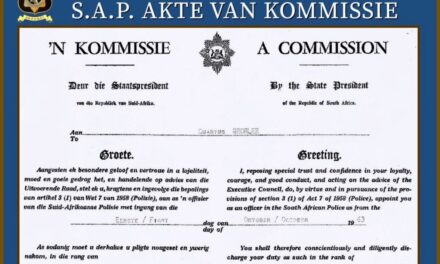

Sad incident but I recall receiving the news and details at COIN Headquarters in Pretoria where I was stationed at the time.
SALUTE
It is very unfortunate that this massacre took place – we were the group that was sent to the area just after this horrible incident took place.
We were stationed at Sidindi police camp and our patrol area was in the Wankie Game reserve region.
Above and beyond the brutality that took place and directed towards my comrades – it serves as a lesson to all of us to this very day – always be extremely vigilant and observant – as there are a multitude of brutal enemies out there – and even if it looks tranquil and restful the enemy is waiting and watching. I miss my old comrades and want to thank them for their service and friendship.
I will Never forget.
I worked with a man, Clement Nyoni, at Lever Brothers (Costing Department) in Harare in the 1980s, who said that his “uncle” was a member of the group that carried out these killings. He said they came across them while they were swimming and then proceeded to open fire. He also said that one SAP member charged them and despite being repeatedly hit, kept coming on. This terrified the group who thought that he had some sort of magic powers. He made no mention of a capture.
Thanks for adding this information, Geoff.
My dad was a member of the SAP and did 4 tours between 1971 – 1974 in Rhodesia, he was well known to Sgt Kuhn and was part of the search team that went out looking for them. He said that this was a sad day and that this horrible sight will stay with him till his death, he also mentioned that they were fresh out of Police college when deployed to Rhodesia, it was tough times and a lot of innocent people got killed, my dad said that he learned a lot from the Rhodesian people and that they became like family.